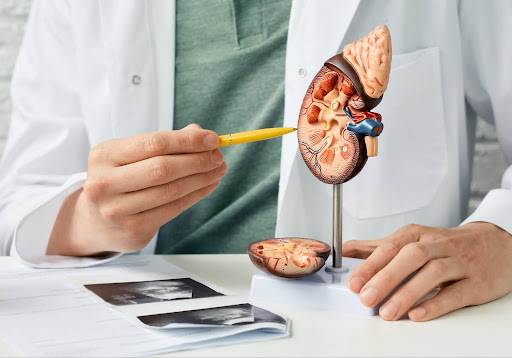
Bladder cancer is among the sixth most common cancer in the United States and is when cells that make up the urinary bladder begin to grow out of control. Although it is most commonly found in older people, with 73 years of age being the average age of diagnosis, anyone can get bladder cancer. Risk factors include family history, gene mutations, workplace chemicals, chemotherapy drugs, chronic UTIs, and unhealthy lifestyle factors such as smoking.
Bladder Cancer Facts
Cases of bladder cancer in young adults are rare, but they do occur. It’s a good thing to be aware of the risk factors and symptoms, so you know what to look out for. Here at Alliance Urology, we have compiled a list of five must-know facts:
- The Most Common Symptom Is Blood In The Urine
Blood in your urine, also called hematuria, is the most common sign of bladder cancer. You may notice streaks of blood in the urine, or the blood may turn your urine brown. This symptom can come and go and isn’t always noticeable. Other symptoms include:
- Increased urge to urinate
- Pain or burning during urination
- Trouble urinating or a weak urine stream
- The urgency to urinate even when your bladder isn’t full
It is important to note these symptoms can be caused by other conditions dealing with the bladder. However, making an appointment with your doctor is always recommended so the cause of the symptoms can be further investigated.
- Bladder Cancer Is More Common In Men Than Women
Cancer is the fourth most common cancer in men. However, this cancer is less common in women, not ranking in the top ten most common types of cancer. According to the American Cancer Society, 1 in 89 women will be diagnosed with bladder cancer in their lifetime, compared to 1 in 27 men.
- Urologists Treat Bladder Cancer In Men And Women
If it is suspected that you have bladder cancer, your general practitioner will often recommend you to a urologist who specializes in the treatment of diseases and conditions of the urinary tract. According to cancer.org, the most effective treatment is chemotherapy, followed by radical cystectomy.
- There Is No Routine Screening
Did you know there is no routine screening for bladder cancer? Unless an individual experiences symptoms that may insinuate this disease, most people do not go undergo any testing that would detect it. However, doctors may recommend tests for those who are at higher risk due to smoking, increasing age, male gender, exposure to certain chemicals, or family history.
- Smoking Is The Biggest Risk Factor
The main controllable risk factor for this type of cancer is smoking or any type of tobacco use. In fact, smokers are 4 to 7 times more likely to develop bladder cancer than nonsmokers, and more than a third of all bladder cancer cases are caused by smoking. Tobacco contains carcinogenic chemicals, which have been directly linked to causing cancer. Over time, these chemicals pass into your bloodstream, which is filtered by the kidneys into your urine. This may cause changes to the cells that line the bladder, ultimately leading to bladder cancer.
According to the American Cancer Society, after completing treatment, you should see your doctor regularly. Let them know about any new symptoms or problems as they could be caused by the cancer returning, a new disease, or a second cancer.
Being educated and staying informed on some of the more common diseases, such as bladder cancer, is essential for your overall health. Our team has years of experience treating issues pertaining to the urinary tract and bladder in both genders. Alliance Urology Specialists are here for you at any stage of life. For inquiries or further questions, please schedule an appointment with one of our providers, or call our office in Greensboro at (336) 274-1114.

